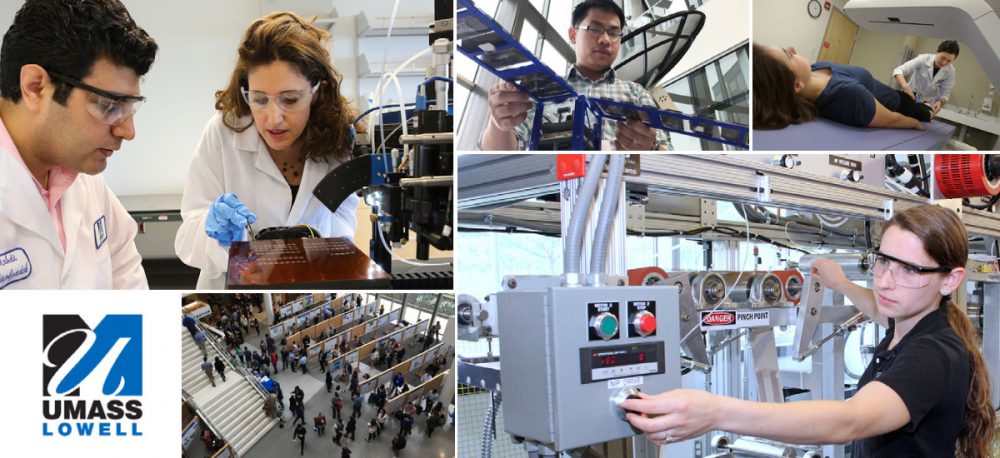
“Keep observing and learning,” says Varun Venoor, doctoral student in the Department of Plastics Engineering. Venoor takes this approach in his daily work, and it has served him well. Throughout his educational journey, he has welcomed opportunities to work alongside a variety of mentors, pivoted when necessary and continued to thrive in curiosity, striving always to generate new, unique ideas.
After receiving a Master of Science in Chemical Engineering from The Ohio State University, Venoor jumped at the opportunity to work with his current advisors at UMass Lowell, Prof. David Kazmer and Assoc. Prof. Margaret Sobkowicz-Kline who are both members of the Harnessing Emerging Research Opportunities to Empower Soldiers (HEROES) program.
HEROES is a collaborative research and development center between UMass Lowell and the U.S. Army Combat Capabilities Development Command Soldier Center (DEVCOM SC) in Natick, Mass. The center works across disciplines to develop creative and effective solutions related to soldier protection, performance and survivability.
Venoor’s first project with HEROES involved developing composites for transparent ballistic applications. During this project, Venoor had the opportunity to work with Jo Ann Ratto, deputy director of DEVCOM HEROES. From there, Venoor began testing polyamides commonly used in these protective armor applications in order to study how materials respond to adverse conditions such as environmental moisture, processing conditions (temperature, shear rate, etc.) and the concurrent application of several of these factors.
“The way a plastic material interacts with its environment determines how its properties change over time and the rate at which this change occurs. My goal is to understand these complex interactions and material behavior so that such fundamental understanding can be applied towards predicting and controlling manufacturing and material failure in-service,” says Venoor. His fundamental research aids in the understanding of the effect of moisture during the processing of polyamides, which he hopes will inform future product development.
As Venoor continues his work, he is also keen on ensuring sustainability stays at the forefront of his research. He recently had the opportunity to work on a project to understand the processability of biodegradable polymers or bioplastics, and the results were promising.
Recognizing the immense benefit of plastics, Venoor also sees the issue of the amount of plastic waste that is not recycled, and he hopes to help develop a long-term solution. “I want to contribute towards bringing a global change in mindset and awareness on what we consume on a daily basis and how we dispose of them. As a researcher, my goal will be to collaborate with the scientific community to bring about novel technologies to recycle polymers,” says Venoor. By all accounts of his work thus far, he is bound to make the impact he hopes for.
